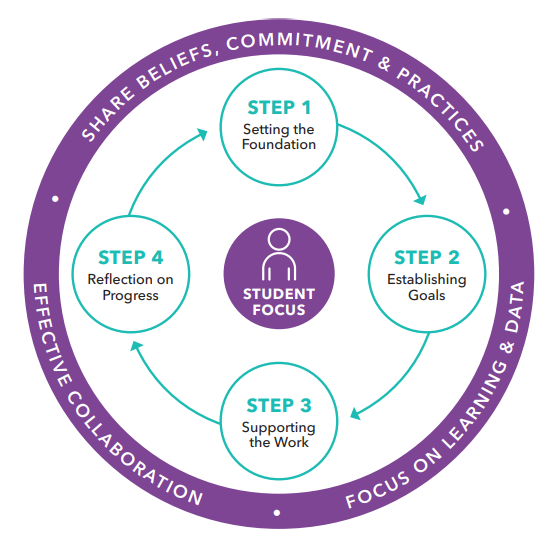
Coaching Approach
There is no one single model for coaching college and career readiness; not for any specific client or even for any specific coaching session. The coaching strategies used support the changes in professional practice required to implement and sustain an equitable system of quality college and career readiness pathways. However, an effective coach, no matter what approach or model they use, brings some common practices and characteristics to the coaching relationship.
Coach Management
Many school districts have multiple coaches providing a range of services coordinated and supported by district administrators. Coaches supporting the implementation of college and career readiness pathways require specific job descriptions, assessment practices, professional development and support systems. Having these things in place will help increase the effectiveness of college and career readiness coaching teams which in turn will help districts to achieve their college and career readiness goals.
- Action Plan Template
- Sample Coaching Plan
- Sample Coaching Report
- Best Practices Sharing Template/ Coaching Tool Template
Coaching Design & Revision Cycle
The coaching model articulates the flow of services provided in a continual cycle of inquiry, support, reflection, and adaptation. It is designed to help practitioners achieve and sustain high-quality pathways. It represents coaching actions and behaviors that support both individuals or teams. The cycle incorporates coaching support, capacity development, and collaborative culture building strategies.
Coaches work with leadership teams and clients to:
- Build strong working relationships based on trust, transparency, and follow-through.
- Learn about the culture, current context, and prior work.
- Identify who within the system needs to be included in decision making, planning, and implementation.
- Review readiness assessments and self-assessments to determine starting points.
- Clarify individual roles, responsibilities, and supports needed.
- Determine level of interest and will.
Domain Resources:
- Building Trusting Coaching Relationships
- Managing Groups and Supporting Effective Teams
- Determining Responsibility
Coaches work with leadership teams and clients to:
- Assist in clarifying the mission, vision, and student learning outcomes for pathways providing college and career readiness.
- Help develop implementation action plans.
- Encourage the determination of benchmarks and indicators of progress to guide work.
- Clarify distributed leadership practices; and
- Articulate clear roles and responsibilities on leadership teams.
Domain Resources:
- Coaching Plans and Reports
- Determining Appropriate Coaching Actions Worksheet
- Setting Goals and Developing Action Plans
- Socio-Emotional Self-Assessment for Coaches
Coaches work with leadership teams and clients to:
- Ensure structural supports, such as programs of study, cohort scheduling, work-based learning, and data systems are in place.
- Assist in assessing the need for technical assistance and professional development.
- Assist in building the leadership capacity necessary across the levels of the system; and
- Utilize available ConnectED resources for supporting quality pathways.
Domain Resources:
- Coaching Leadership Teams and Communities of Practice
- Systemic Approach to Coaching
- Coaching the District Critical Conditions
- Coaching the Site Leadership Domains
- Coaching the Pathway Essential Elements
- Coaching Model Phases and Resource Chart
Coaches work with leadership teams to:
- Utilize data to gauge progress.
- Encourage the use of data and feedback to identify challenges, refine practices, select additional supports, and revise plans.
- Support the sharing of pathway gains and challenges with all
stakeholders; and - Acknowledge, learn from, and celebrate successes.
Domain Resources:
- Coaching Cycle of Continuous Improvement
- Data-driven Dialogue and Decision-Making
- Monitoring Action-Plan Implementation
- Supporting Continuous Progress through OPTIC
)